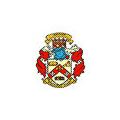Studies & Degrees in Statistics
Choose where you would like to study Statistics:
ArgentinaAustraliaAustriaBrazilCanadaChileChinaColombiaCzech RepublicDenmarkEcuadorEthiopiaFinlandFranceGhanaGreeceIndiaIrelandItalyNetherlandsNigeriaPakistanPeruPhilippinesSouth AfricaSouth KoreaSpainSwedenSwitzerlandThe United KingdomThe United StatesZimbabweStatistics Study Programs
Level: Undergraduate Bachelors
Location: Villanueva de la Cañada
Statistics is the science of compiling data and the art of learning from what initially seems to be a mess of numbers and figures. Statistics is usually a subject that is provided along with mathematics or economics and is not taught as an isolated major subject. However, the wide ranging applications of the subject make it a hot favorite among students, with the sheer fun of visual representation of data boosting its popularity.
Personal Qualities Required to be a Statistician
To be a student of statistics, you will need to be good at math, especially in plotting graphs and calculating for comparisons, probability and basic permutations and combinations. A student of statistics needs to be an inquisitive individual who can pose a zillion questions to get the most out of the data at hand, and to know what additional data to gather. Statistics is a logical application that comes in handy for students of all disciplines.
Statistics Courses
The exact course offered for statistics differs from university to university, but the following skills are an integral part of the subject and will definitely be imparted to students:
- Description of data – this includes the pictorial representation of data in various forms like pie charts, line graphs and more. Calculation of the data available with single and double variables is also a part of this subject.
- Probability – this is essentially teasing the data at hand to give you the information you need. You will learn the basic rules and formulae of calculating probability, probability distributions like binomial and poisson distribution, continuous, normal, exponential and normal distributions, and studying the variances of random variables.
- Inference or the ability to draw conclusions after processing the data at hand – you will be introduced to theoretical knowledge like the central limit theorem, selection of sample sets to better represent the actual study group, the criteria by which a certain data collection and processing method must be chosen, concepts related to hypothesis tests, constructing confidence intervals and studying linear regression.
Career Options
A student of statistics can be lapped up by a wide range of employment sectors. In research departments, be it molecular physics, astronomy, biology, sociology or any discipline you can name, it is important for you to know your statistics as it an essential research tool. Statistics is all the more important in researches that require sample surveys. If you are with a medical agency conducting lab tests on animals or humans, you will need to statistically record your data so that the team learns at a glance as to where improvement is called for. Collecting data for governmental agencies so as to facilitate the structuring of good welfare plans is another field of application.
Social media and marketing is fast developing sector today with innumerable employment opportunities, and this field is heavily reliant on statistics. You need to calculate the reach of your posts, calculate the probability of its visibility and impact and a host of other factors, making statistics the king of all skills required today. If you are at the top of your game, you can take home six-figure salaries.


